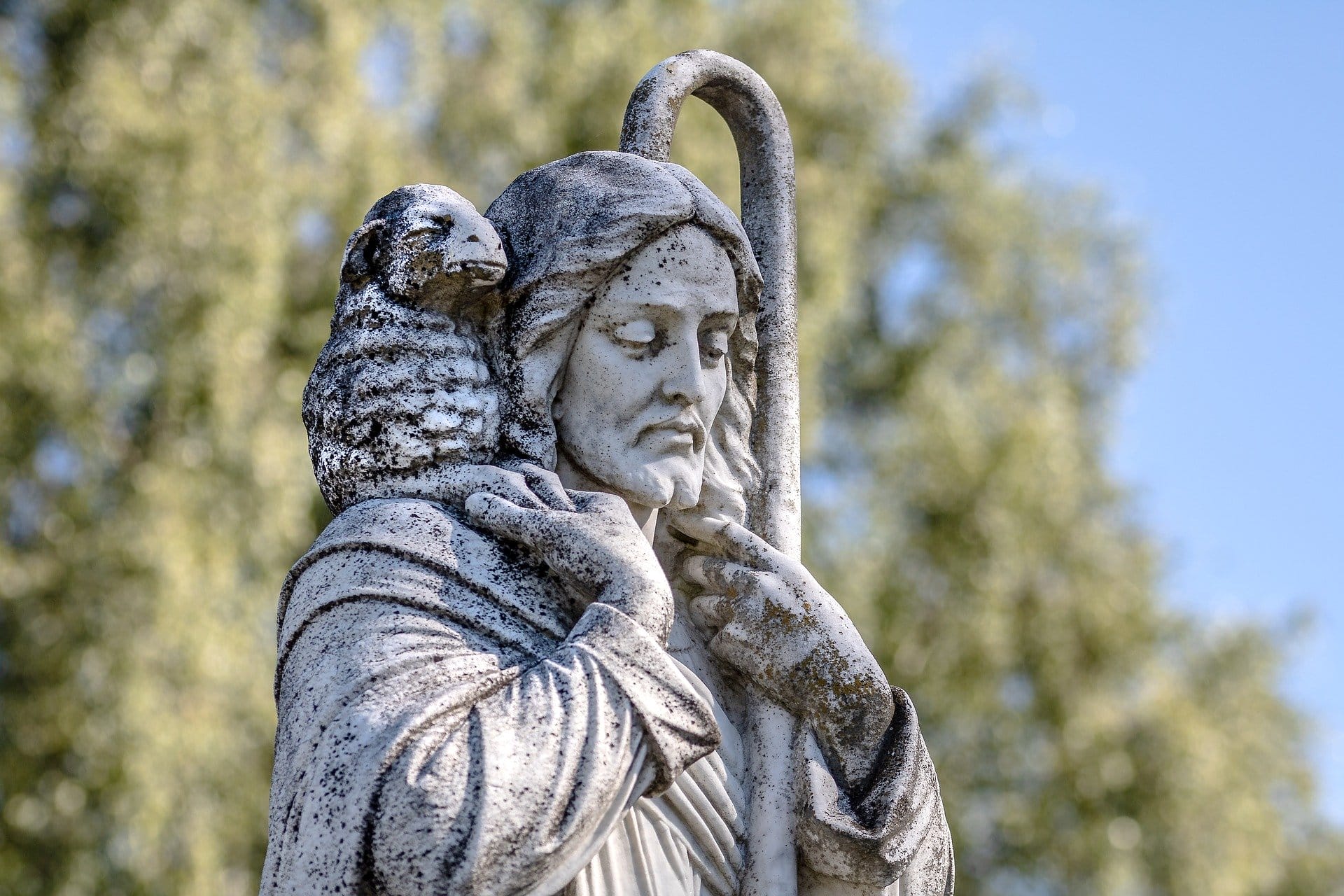Mario Alberto Molina, O.A.R., Archbishop Emeritus of the Archdiocese of Los Altos, Quetzaltenango – Totonicapán, offers us this profound reflection for the IV Sunday of Easter. In the figure of the Good Shepherd we discover Christ who calls us by name, who guides his Church through ordained ministers and who saves with a message that is not cultural, but universal.
The Good Shepherd: Christ guides his Church with a recognizable voice
Today is the Fourth Sunday of Easter, called “Good Shepherd Sunday” because a passage from Chapter 10 of the Gospel according to John is always proclaimed. In it, Jesus presents himself as the good and exemplary shepherd of the sheep that the Father has placed under his care.
We become part of that flock when we accept faith as a criterion of life and receive the sacraments: baptism, confirmation and eucharist. As Jesus teaches: “My sheep hear my voice… I know them and they follow me”. He guides us to eternal life through paths of holiness.
Day of Prayer for Priestly Vocations
Today is also the World Day of Prayer for Vocations. Jesus Christ, the Good Shepherd, exercises his ministry today through ministers consecrated through the sacrament of Holy Orders: bishops, priests and deacons.
There is always a shortage of vocations, so we pray that the Lord will awaken in many young people the desire to give their lives to the service of the Gospel. Apostolic succession-the bishops in communion with the pope-guarantees the authentic continuity of the Church. We joyfully celebrate the election of the new pope, Leo XIV (Robert Francis Prevost), and pray that he will reflect the shepherding of Christ.
The Lamb is also a Shepherd: vision of glory in the Apocalypse
The second reading, taken from the Apocalypse, offers us a consoling image: a countless multitude before the throne of God and of the Lamb. That Lamb, who was slain, is also the Shepherd who leads to the springs of living water.
who leads to the springs of living water.
The saints “have washed their robes in the blood of the Lamb,” that is, they have been purified by Christ’s redemptive death. This image expresses both the abundance of God’s gift and the transforming efficacy of his grace.
Abundant salvation for all
The vision of an immense crowd speaks to us of the generous scope of salvation. God does not choose only a few: his gift is abundant, his grace powerful and his love capable of reaching all who respond in faith.
Moreover, this multitude is universal: of all nations, races, peoples and languages. This reaffirms the Catholic character of the Gospel: it is a message that does not belong to a single culture or nation, but responds to universal questions of the human heart.
Why proclaim the Gospel to all?
 There are those who think that Christianity is just another religion, a cultural phenomenon like any other, and that it has no right to spread among other peoples. But the Gospel is not a cultural construct: it is the personal revelation of God incarnate that offers a true answer to the great questions of the human being.
There are those who think that Christianity is just another religion, a cultural phenomenon like any other, and that it has no right to spread among other peoples. But the Gospel is not a cultural construct: it is the personal revelation of God incarnate that offers a true answer to the great questions of the human being.
The meaning of life in the face of death
One of these questions is: why live if we are going to die? Death casts a shadow of anguish over existence. But the risen Christ has conquered death and offers that victory to those who believe in him. In Christ, the end is not darkness but fullness of light.
Is it possible to start over?
Another great human question is: can we start again after having failed? We all make wrong, sometimes destructive, decisions. God’s love manifested in the cross responds with forgiveness, inner strength and moral light to reorient our lives.
The Gospel: good news for all humanity
That is why the Gospel must be proclaimed to all peoples. It is not a cultural imposition, but an offer of life, freedom and fulfillment. It is the good news that saves, heals, forgives and guides. It is universal because it responds to the depths of the human heart.


